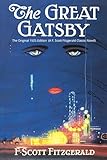In 1971, when J. Michael Lennon was a graduate student writing his PhD thesis on Norman Mailer, he began a correspondence with his literary hero. It was the start of a lifelong relationship that led to Lennon becoming Mailer’s archivist, biographer, editor, collaborator, and close friend. That relationship is at the center of Mailer’s Last Days: New and Selected Remembrances of a Life in Literature, a combination of memoir and literary criticism which charts what Lennon calls, “the rising action of my life in literature.”
Lennon’s book weaves together his career in academia—he is now an Emeritus Professor of English at Wilkes University—with recollections of his rather idyllic childhood in Massachusetts, as part of a large Irish Catholic clan, many of whom worked in the local textile mills. So we meet Lennon’s beloved grandmother and her pet crow Martha; his mother, a voracious reader and reciter of W.B. Yeats and Gerald Manley Hopkins; and his father, a highly intelligent and frustrated blue-collar polymath with an impressive knowledge of music, as well as the works of F. Scott Fitzgerald, Joseph Conrad, and Charles Dickens. We also learn how Lennon solved the mystery of his grandfather’s disappearance, a closely guarded family secret because, as he puts it, “the Irish know how to bury things.”
Lennon turned to the study of literature after a five-plus-year stint as a naval officer, and in 1972 he met Mailer for the first time. “These essays,” he writes, “attempt to explain why and how I became Mailer’s putative son, and how I became, for a time, less of a son to my actual father.”
At the age of 80, Lennon has lived long enough to see how writers’ reputations change over the decades. Since his death in 2007, Mailer’s reputation is still undergoing a transformation. To writers of my generation, Mailer was like a member of the family, in the good and the bad sense: omnipresent, sometimes disappointing, sometimes appalling, often brilliant, always calling attention to himself, and impossible to ignore. But to many younger literary types, Mailer is close to anathema, for his trafficking in misogynistic and racial stereotypes and the near-fatal stabbing of his wife Adele Morales, among other reasons. I talked with Lennon about his relationship with Mailer, Mailer’s contemporaries, and the challenges he faced as an academic and critic writing a highly personal memoir.
Ronald K. Fried: The last time I interviewed Martin Amis he quoted his Spanish publisher who said that after writers die, they are in purgatory in terms of their literary reputation. So my question is: As we approach what would have been Norman Mailer’s 100th birthday, is he now in literary purgatory?
JML: Well, the four places that Catholics talk about are heaven, hell, purgatory, and the fourth is limbo. Mailer’s view was that when you die, if you’ve been a successful author, there is a brief efflorescence after your death and then, after that, a slow sinking into obscurity, into limbo, only punctuated if there is some event in the world that causes you to be revived like, say, the Black Lives Matter movement resuscitated Baldwin. Mailer also felt that 30 years after an author dies, you will know whether they are going to survive. Either something will pull you back into the public eye, or there is a long, continuing simmering interest in your work, which means that at the end of 30 years, you will go to what he called “the Blessed Isles of Posthumous Investiture.”
RKF: Do you think that the some of Mailer’s peers, certain white male post-war novelists, are becoming somewhat passé now? They certainly don’t seem as meaningful to younger readers as they were to me. In your experience, are they even read?
JML: Yes, they are read, but they’re not read as much. And this is partly because most of them have been kicked out of the anthologies that are often taught in colleges. So the Norton Anthology and other major anthologies have less and less Saul Bellow, less and less John Updike, less and less Philip Roth. Mailer too. Writers are always being dropped and added. In Mailer’s case, I think the thing that’s going to help keep him alive is he was one of the founders of the New Journalism, and also his political writing about fascism coming to the U.S. But some wonderful writers are being forgotten. For example, James Jones’s 100th birthday passed almost unnoticed.
RKF: You write that Baldwin, Joan Didion, and Gore Vidal will be remembered more for their nonfiction than their fiction. Does this prediction have to do with your thoughts on the relevance or the future of the novel?
 JML: Well, it doesn’t speak well for the future of the novel. The novels that tend to last into the future you can put into two categories. One category is where there is a stylistic advance or something exceptional about the style—for example, The Sun Also Rises, which survives because of its understated style. Or, in the case of The Great Gatsby, it’s the definitive portrait of the Roaring Twenties, so it captures an historical period.
JML: Well, it doesn’t speak well for the future of the novel. The novels that tend to last into the future you can put into two categories. One category is where there is a stylistic advance or something exceptional about the style—for example, The Sun Also Rises, which survives because of its understated style. Or, in the case of The Great Gatsby, it’s the definitive portrait of the Roaring Twenties, so it captures an historical period.
RKF: And if Mailer is to be credited with a stylistic breakthrough it has to be for his journalism, and the device of writing about himself in the third person.
 JML: Yes, exactly. In the Armies of the Night, he’s got the definitive book about the anti-Vietnam War movement. You have to look at that book if you’re talking about the war in Vietnam and the rallies against it. But at the same time, in that book, you’ve got Mailer using the third-person personal, using himself as a prism to understand that event. So it’s important stylistically as well as important historically. So it’s a double whammy. That book, in my opinion, will be the one of all of his books that lasts. Today more historians and journalists read Mailer’s nonfiction than do literary people.
JML: Yes, exactly. In the Armies of the Night, he’s got the definitive book about the anti-Vietnam War movement. You have to look at that book if you’re talking about the war in Vietnam and the rallies against it. But at the same time, in that book, you’ve got Mailer using the third-person personal, using himself as a prism to understand that event. So it’s important stylistically as well as important historically. So it’s a double whammy. That book, in my opinion, will be the one of all of his books that lasts. Today more historians and journalists read Mailer’s nonfiction than do literary people.
RKF: You met Mailer when you were a graduate student. What drew him to you?
JML: There were a couple of things. The first is that he saw that I knew his work intimately. He saw that I’d read everything, and I knew more about his minor works, his interviews, and his forgotten essays than he did. I could give him page numbers. And so it became a reflexive line: “If you want to know when I wrote something, where I published it, contact Mike Lennon.” So I became his bibliographer, as well as his archivist. I was relentless in ferreting out his obscure writings. The second thing is that he always liked the Irish people. He had so many Irish friends, including Jimmy Breslin, Brendan Behan, and Pete Hamill. He liked their blarney, their gift of gab, their joking ability, and their weaknesses for drink. You could say he had a narrow view of the Irish, but I haven’t heard anyone complain about it.

 RKF: I want to talk about E. L. Doctorow because it seems to me that reading Ragtime gave Mailer the idea of putting historical figures into a work of fiction. And that seemed to really open up something in Mailer because his great gift was to describe real people, and when he was able to do that in a work of fiction like Harlot’s Ghost, there was a new excitement in his work.
RKF: I want to talk about E. L. Doctorow because it seems to me that reading Ragtime gave Mailer the idea of putting historical figures into a work of fiction. And that seemed to really open up something in Mailer because his great gift was to describe real people, and when he was able to do that in a work of fiction like Harlot’s Ghost, there was a new excitement in his work.
JML: I agree. Ragtime really turned Mailer around. He felt that Doctorow had created something new by writing scenes of probable conversations between historical characters. Doctorow has that great scene with Henry Ford and J.P. Morgan talking about the Egyptians and their beliefs and so forth, and Mailer thought it was beautiful. He said if it isn’t true, it should be true. It’s so good. It’s so characteristic of those two people. And of course he does exactly the same thing in Harlot’s Ghost. He’s got Frank Sinatra, Sam Giancana, James Angleton, and JFK. He’s got all of these great characters all meeting and talking. And Mailer always said that when a writer sees a technique they like, they steal it.
RKF: Mailer thought that Don DeLillo was his most important successor. Can you talk about why that was?


 JML: Mailer had great admiration for Libra, DeLillo’s novel about Lee Harvey Oswald, and he said, “It gave me the push I needed to write Oswald’s Tale,” which was Mailer’s nonfiction book about Oswald. Mailer said, “I thought DeLillo did a magnificent job of explaining Oswald’s consciousness.” But the other thing that Mailer liked is that in books like Underworld, DeLillo was writing about the psychological basis of American character and America’s traumas. DeLillo was writing about the dream life of a nation in much the same way that Mailer was.
JML: Mailer had great admiration for Libra, DeLillo’s novel about Lee Harvey Oswald, and he said, “It gave me the push I needed to write Oswald’s Tale,” which was Mailer’s nonfiction book about Oswald. Mailer said, “I thought DeLillo did a magnificent job of explaining Oswald’s consciousness.” But the other thing that Mailer liked is that in books like Underworld, DeLillo was writing about the psychological basis of American character and America’s traumas. DeLillo was writing about the dream life of a nation in much the same way that Mailer was.
TM: You wrote that DeLillo has “a sense of something extraordinary hovering just beyond our touch and just beyond our vision.” And I think Mailer felt that as well.
JML: Yes, he and Mailer share that. They had intimations of forces that were just out of the reach of our consciousness that are impinging on us. They both had this terrific sense of the dread of being an American, the dangers to democracy and to language, and the fears and the guilts that all Americans share. That’s what drew them together, the American experience, the feeling that it was ghost-ridden.

 RKF: Most writers of Mailer’s era held onto the notion that the ultimate achievement for a writer was to write a great novel. Do you think that notion has disappeared from our consciousness?
RKF: Most writers of Mailer’s era held onto the notion that the ultimate achievement for a writer was to write a great novel. Do you think that notion has disappeared from our consciousness?
JML: No, I don’t think so. I don’t think it’s disappeared. I think it’s been pushed back by memoir to some extent. But you know, the novel is like a mountain—it’s like trying to climb Mount Everest—lots of paths up. Mailer said that the great irony of his writing life is that he dashed off his journalism, and yet this work was his most successful. He said, “I wrote the nonfiction at a white heat, but those are the pieces that people revere, while the novels that I killed myself on don’t get much recognition” The Armies of the Night he wrote in six weeks. And he spent 11 years on Ancient Evenings, and it’s largely overlooked. It’s not a successful novel. Harlot’s Ghost was more successful because it’s American, and he really knew what he was talking about.
RKF: We haven’t talked about Mailer stabbing his wife in 1960. If that happened today, would any major publisher continue to publish Mailer? I don’t think so.
JML: Oh yeah. I don’t think that Mailer paid the price. He was on probation for several years. A total of about four years, and he had to call his probation officer. But he would have paid a much, much greater penalty today. The Me Too movement has heightened awareness of how women have been brutalized, assaulted, and all those horrible things that were previously brushed under the table. Mailer got off lightly.
RKF: Your new book is part memoir. Were you uncomfortable writing about yourself? It’s a lot different than being a scholar or a critic or a biographer.
JML: It was difficult. I had a lot of trouble getting started. The idea of a memoir always seemed to be a little self-serving. There was something tawdry and gossipy about it. So I was resistant. But once I got into it, I was very surprised at how much came back to me that I had completely forgotten.
RKF: You end the book with a series of diary-like entries about the final days of Mailer’s life. But the final chapter is “Fathers and Sons,” which is about your own father and his troubled life, his drinking, his relationship with you, and revelations about your father’s father, your grandfather. Why end it there?
JML: The big question my editor, Bob Mooney, and I wrestled with was where to put “Fathers and Sons.” Finally, I thought for structural Integrity let’s end the book with the subject that keeps calling to me: my father and the mystery of my grandfather. It’s an homage to my father, to what he had to live through in the Great Depression.
RKF: So would you say that Mailer became a kind of surrogate father for you?
JML: Norman was curious about everyone he met, but more so about people who knew him longer, more deeply. It was no surprise to him that I considered him to be a father surrogate. But he took on the role and offered advice on my career choices, my ideas, my writing. He never hesitated to give me paternal counsel—he said once that he was “a born meddler.”
The post A Hundred Years of Norman Mailer appeared first on The Millions.
Source : A Hundred Years of Norman Mailer













